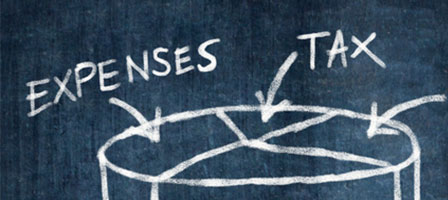WHAT HAPPENS WHEN I DEFAULT ON A BUSINESS LOAN?
What does it mean to default on a loan?
A loan default is the failure to meet the financial obligations indicated in the loan agreement that is signed by you and your lender. Often, a loan default translates into the business owner’s inability to pay their debts on time. Due to the differences in each loan agreement, default penalties vary. However, the effects of defaulting on the loan fall into two general categories- immediate repercussions and future implications for both you and your business.
What are the immediate effects to my business if I default on a loan?
Drop in business and/or personal credit score. Missing your payments and defaulting on your loans negatively impacts your business credit score. Your personal credit score may be affected, depending on the type of business structure that you have in place.
Increased interest rates. Your business interest rates (and possibly your personal interest rates) may increase if your credit score dips. Depending on your loan agreement, a higher interest rate could affect the loans that you currently have, as well as future loans you plan to seek.
Foreclosure or seizing of property and collateral. Foreclosure may be the most severe repercussion due to a loan default, allowing lenders to recuperate losses from loan defaults. In this situation, your lender will have the full right to take control and ownership of your property and collateral that you have included in your contract. They normally will sell your property privately or by a public auction, depending on the profit margin.
What steps should I take next?
Negotiate terms with your lender. If you default, you can try renegotiating the terms of your loan contract with your lender. While lenders may not always be willing to renegotiate, if you are successful you can minimize the damage to your business’s financial health. Ways to reduce the negative impacts of the loan default include:
• Changing the terms of payment, e.g., paying less per installment but for a longer period of time
• Paying less over more time with a higher interest rate
• Asking your lender to forgive a portion of your late payment and agree to pay on time in the future
Consider government debt relief options. The federal government’s Small Business Administration (SBA) can help facilitate business loans with a third party lender, guarantee a bond, or help a business find venture capital. During severe financial crises, the government often creates specific programs for a limited time to help faltering small businesses.
Cut costs. Minimize your expenses. Though this may not be an ideal situation, you can consider laying off part of your staff and downsizing your business, among others. If you are paying rent for your place of business, consider moving to smaller quarters or to a locale where rents are less expensive, if doing so won’t harm your business’ sales or a move won’t be too costly.
Sell business assets. Liquidating business assets or converting your assets into cash may temporarily help you pay off your loans until you can afford to pay your bills on time again.
Consult a lawyer. Consulting a lawyer about your options may also help you through the process.
What does this mean for the future of my business?
Difficulty finding new loans. After you default on one loan, it will make it much more difficult to find a new loan. If loans are the chief means of financing your business, then you will be running into some difficult hurdles. You may want to start looking into other methods of funding your business.
Bankruptcy. If your business cannot repay its loans, you may need to file for bankruptcy.
What Can I Do to Avoid a Loan Default?
Of course, the best way to avoid defaulting is to pinpoint the pitfalls of bad loans and avoid them at all costs. To avoid loan defaults, business owners should remember the following best practices:
• Have a concrete payment plan before you decide to borrow.
• Do not offer collateral and property in your contract that you cannot afford to lose.
• Read the fine print and thoroughly understand the terms of the contract.








Leave a Reply
Want to join the discussion?Feel free to contribute!